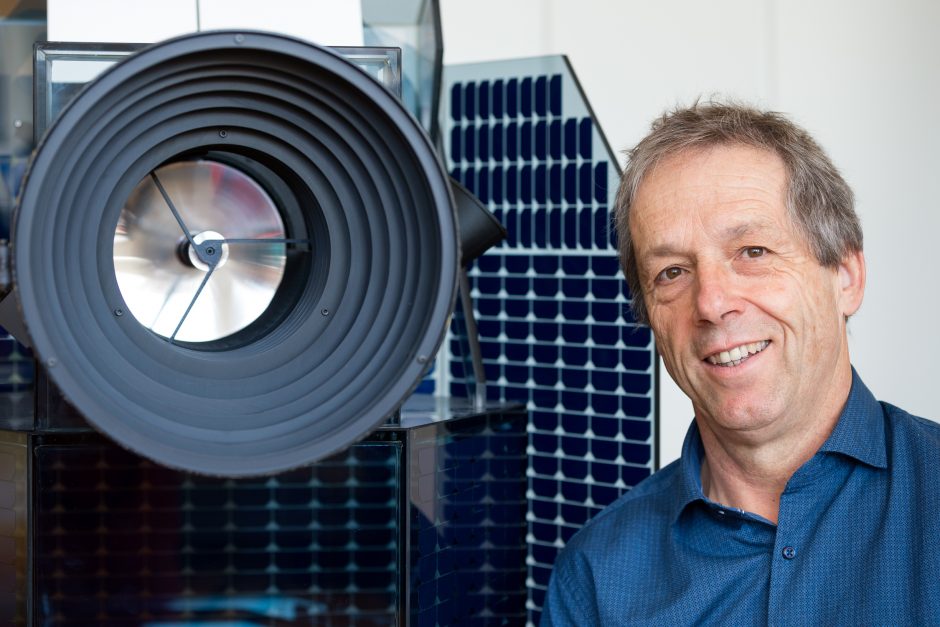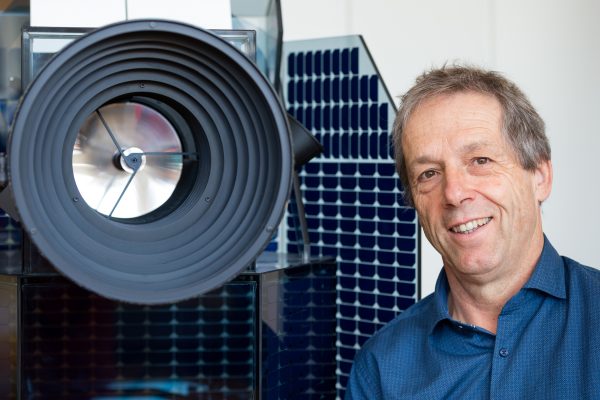Editorial

Dear Reader,
This is it! For the astronomers involved for many years in the design and building of CHEOPS the real excitement begins. The first scientific results obtained from the data collected by CHEOPS have just been published! Following one of the most extreme exoplanet known (WASP-189b is its name), CHEOPS could detect not only the dimming of the stellar light as the planet passes in front of the star (transit) but also the much smaller decrease in light as the planet disappears behind it (occultation). These measurements allow us to infer not only the radius of the planet but also some of the reflective properties of its atmosphere and its ability to redistribute heat over the surface. They also confirm that CHEOPS is actually the precision measurement machine it was intended to be. We are looking forward to the next papers (several are already in the pipeline) that will focus on much smaller planets.

NCCR PlanetS director Willy Benz with a CHEOPS mock-up. (Photo Alessandro Della Bella)
CHEOPS received the 2020 Aerosuisse Award. Aerosuisse, is the umbrella organization of Swiss industries active in aeronautics and aerospace which has established this award to honor great services rendered for the benefit of Switzerland in these domains. A prize awarded by this branch of industry to a scientific mission makes me particularly happy as it shows that synergies can indeed be everywhere if one strives for them. This is further evidenced by the strong and vast involvement of Switzerland in space activities as illustrated by the COSPAR report and the interview of Renato Krpoun, the Head of the Swiss Space Office. As once expressed by the former federal councilor Johann Schneider-Ammann: “Switzerland is a space-faring nation”.
CHEOPS Is not the only instrument we use to investigate exoplanets. In this edition we also report about results obtained using ESO (European Southern Observatory) instruments. We are particularly proud of these results also because there has been significant contributions by PlanetS scientists and engineers to the design and construction of these instruments.
I hope you will enjoy reading about these stories and others in this edition of the Observer.
With my best wishes,

Willy Benz, director of the NCCR PlanetS.
Categories: External Newsletter
